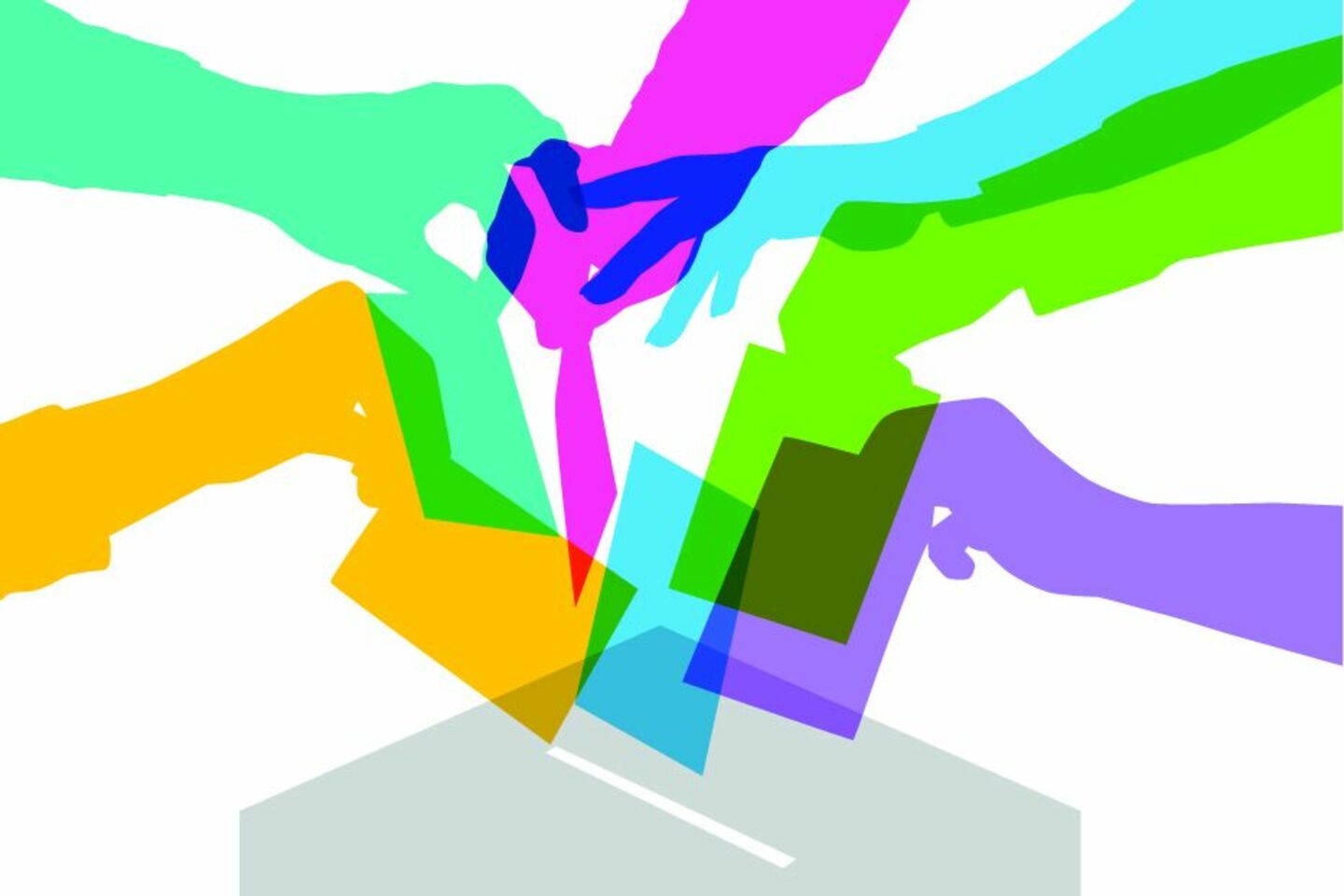
Increasing the political awareness of students is hard work
How do you make sure that students become politically aware? In the run-up to the political elections on Wednesday March 21 this is the moment to find out. Events are organized at TU/e to involve students more, for instance by a debate for Dutch-speaking students and an information evening for internationals. Some students devote all their leisure time to political activities and find their names back in the lists of candidates of their parties. In their opinion, municipal politics is not about loose pavement slabs, but about sustainability and student accommodation.
Cornel really wants to get cracking
In Cornel Marck’s parental home in Moerkapelle the largest possible number of political parties is present at the table. Christen Unie (Christian Union), CDA (Christian Democrats) and D66 (Democrats) are represented by his parents and sister, while he himself favors VVD (Liberals). “My own ideals fit in with those of VVD. We think that you should make your own choices, that hard work should pay and that everybody is responsible for their own actions.”
The student of Chemical Engineering who is also doing a Bachelor’s program of Industrial Engineering and Management Sciences has developed an opinion on sustainability in particular. “However, I don’t just want to have an opinion, I really want to get cracking too.” Which he can certainly do as a student of technology. “Especially as an engineer you develop the ability to think analytically and read reports from a certain perspective. You have a different view from civil servants and that can be refreshing.”
Besides, being active in the political movement is a good development for him personally. He would very much like to sit on the Eindhoven municipal council. In his own words he will need about 450 preference votes. He ranks 14th on the list and at present VVD holds six seats. “I’m campaigning and I’m not putting all my eggs in one basket. I promote my page on Facebook with sponsored messages and I ring people’s doorbells. That last-mentioned activity takes some 15-20 hours per week. I introduce myself briefly but effectively, mentioning two important items and soon notice whether I can have a useful discussion. I don’t try to persuade people, but I do ask them to vote for me.”
Cornel wants to work actively for housing for young people in the medium rent segment. Young graduates who cannot or will not buy and who will not or are not allowed to rent from a housing corporation also depend on that.
Eva wants everybody to feel welcome in Eindhoven
Eva de Bruijn, a student of Industrial Design, speaks extremely fast and wants extremely much. For instance, she wants students to go and vote, wants internationals to be aware of their right to vote, wants students and refugees and expats to feel welcome in Eindhoven, wants people to understand each other’s views. During the coming period she wants to work actively as a committee member of the municipal council, for a seat would not be feasible at this point. She occupies the 8th position in the list of GroenLinks (Green Left) and that party now has four seats in the council.
“When I was in Sweden for my traineeship during the past parliamentary elections, I was itching to do something. I decided to become active for GroenLinks because they expressed an opposing view to populism, because they were aware of the urgency of the climate issue and because of their long-term vision.”
As the average age of municipal politicians is 53, Eva assumed that her new hobby might seem to be a rather distant enterprise. “However, I have noticed that you can exert a lot of influence locally and that the party is actually looking very much for young people and a fresh voice.”
She lies awake from the fact that it continues to be so difficult for internationals and Dutch people to mingle, even at TU/e. And from the poor air quality of Eindhoven. “I’m really worried by the fact that so much of politics focuses only on the short term. Sustainability should be regarded as an opportunity to realize both economic and social progress. The vision about the climate can be expressed much better, although there are some pluses as well. GroenLinks has seen to it that Eindhoven is the first city in the Netherlands which has a climate budget. Apart from euros the budget also takes into account CO2 emissions.
Eva is not going to canvas for preference votes: “GroenLinks hopes that the electors will vote for the party vision rather than for individual persons.”
Viktor wants to voice the student opinion within the CDA
“I am someone with an opinion”, says Viktor van ’t Klooster, “and interested in the greater picture. Who decides what?” He is a third-year student of Architecture, Building and Planning and ranks 21st in the CDA list. At present the party has four seats and Viktor does not expect to win a seat on the council. He is putting his energy into the campaign team, which means: not so much in winning preference votes, - and in obtaining his Master’s degree.
“The university is a bubble within Eindhoven. Students have the feeling that they are merely here temporarily.” Initially he also had that feeling, coming from Borger in Drenthe, but as a result of his political activity he got in touch with the city. And he has taken to that city. He wants to take up arms against rack-renters and fight for an active student city. And he thinks that the CDA of all parties can play a role in this pursuit. “The CDA is a party for people who have a sense of community. We think that student associations are of immense value to the city because they organize activities that make the city come alive.”
Cutting down a lot on paperwork is high on Viktor’s to-do list and he is going to make an effort to make it easier to obtain event licenses.
“Student accommodation to me is more than just flats on the TU/e campus and some tower blocks at Strijp-S. Students should also be able to live in ordinary houses in the city center.” The CDA is also a broad people’s party, though, says Viktor: “So we also stand up for people who suffer nuisance from students.”
What’s it all about?
The city council deliberates on more important items than loose pavement slabs, as Eva de Bruijn, Cornel Marck and Viktor van ’t Klooster assure us. It also deals with the traffic flows that people have to cycle through every day and with the opening hours for shops. The municipality even exerts influence on the time when you turn in on Thursday night, because it is also in charge of the permits for the opening hours of cafes at Stratumseind.
In the week preceding the debate (see below) we have asked your opinions on the blocking of Vestdijk for cars, the best closing times for pubs and the question whether the municipal council should include a student party. We also wanted to know whether you find it worthwhile for student teams that win important prizes to be honored in a grand fashion. And what do you actually think of the possibilities for living in Eindhoven? Is the rent for a room in Luna really affordable, for example?
We posted five statements on Facebook and it is safe to say that that is not a very reliable method of investigation. Without attaching any scientific value whatsoever to this, we summarize what the views are of Cursor followers.
The standard closing time for hotels, restaurants and cafés at Stratumseind on Thursday night should be extended to four o'clock
Slightly more than fifty percent think that the success of student teams should be celebrated across the whole city. So the next tribute to Solar Team Eindhoven should not be organized in the market hall of MetaForum on a Thursday afternoon, no, the team should preferably be cheered while touring on a big cart (or in its Stella Vie) along Stratumseind to the Town Hall square.
A distinct majority favors a student party for Eindhoven, fully made up of students. More than sixty persons clicked on in favor, 24 on against. Still, that may also have been due to the funnyGIFs. A similar division between persons voting in favor and against was shown with regard to making the inner city nearly car fee. There were definitely three times as many participants in the poll who want fewer cars on the Vestdijk.
The closing times of cafés at Stratumseind is an issue that certainly has your interest, for here we see the largest number of respondents (over two hundred), although your opinions are quite divided. Fifty percent thinks 02.00 a.m. is late enough and fifty percent want the pubs to stay open longer on Thursdays.
Opinions about the rents in Luna were very different indeed. Whilst no amounts were mentioned, 157 persons find Luna too expensive. Merely a few respondents clicked on the option that Luna is affordable enough.
Debating makes politics visible
The debate held by Studium Generale and Compositum (the umbrella of the three student social clubs) in the Blauwe Zaal on Monday night March 12, was in the style of the House of Commons. This form, whereby the audience walked from left to right according to whether they agreed or disagreed with what was said, made the event lively and interactive. Leader of the debate Gijs Weenink made people laugh a lot, but was unable to let anyone go deeper into issues. According to student Eva de Bruijn the form did not permit any dialog: “When a politician attacked someone, that person was not given an opportunity for defense.” She thinks that the evening did help her fellow students in understanding the relevance of local politics. “For a well-considered choice most people will probably first need to complete a voting guide, though.”
Student Cornel Marck thought the set-up of the evening was a great success. “In spite of the fact that there was a large number of undecided voters in the hall, I’m not sure to what extent the debate helped them to determine their choices in the vote. Perhaps things were too disorganized to emphasize the differences between parties clearly. Nevertheless various important statements within Eindhoven politics were discussed.” Marck is pleased that at last there was ‘an evening of visibility’ for politics in Eindhoven. “Maybe that visibility is the greatest gain of this evening in the long term.”
Thirteen politicians discussed nine statements. The most experienced speaker was PvdA’s leading candidate Yasin Torunoglu. He also managed to get the support of the majority and for that reason was proclaimed the winner of the debate. The funniest speaker was entrepreneur Johan Vlemmix, who is the founder and leading candidate of the Partij van de Toekomst (Party of the Future). He had bizarre plans about pot farms and mortuaries in vacant factories.
Austrians can, Swiss cannot
Internationals cannot vote in the elections to the Lower House and the provincial council elections in the Netherlands, but they can cast their votes for municipal elections. All the people older than 18 who are nationals of a country within the European Union receive voting cards. All persons over 18 who have lived in a Dutch municipality legally for at least five years and who hold valid residence permits, are also allowed to use a red pencil on March 21.
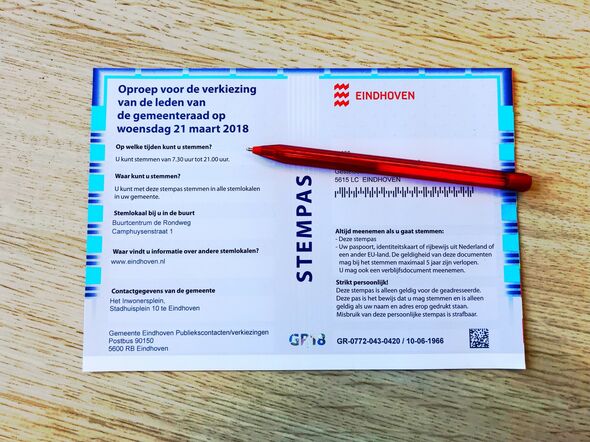

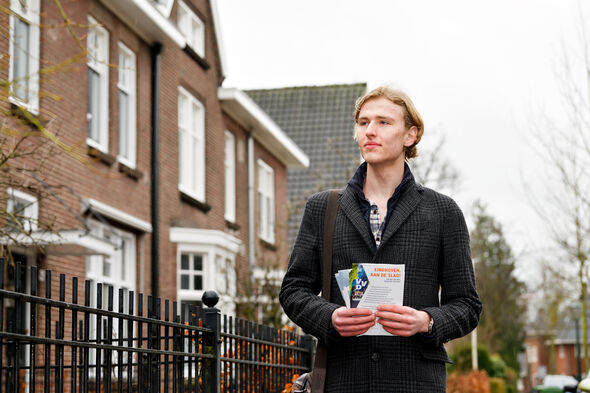
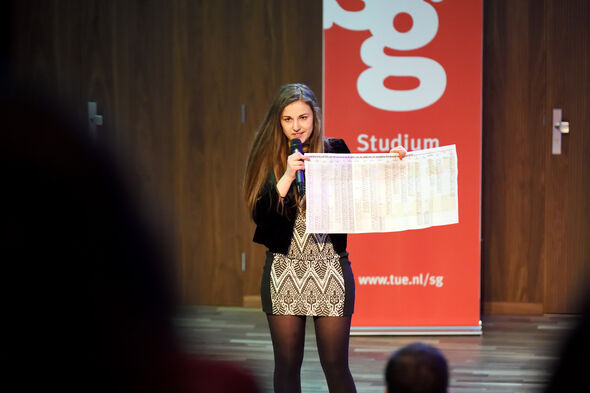
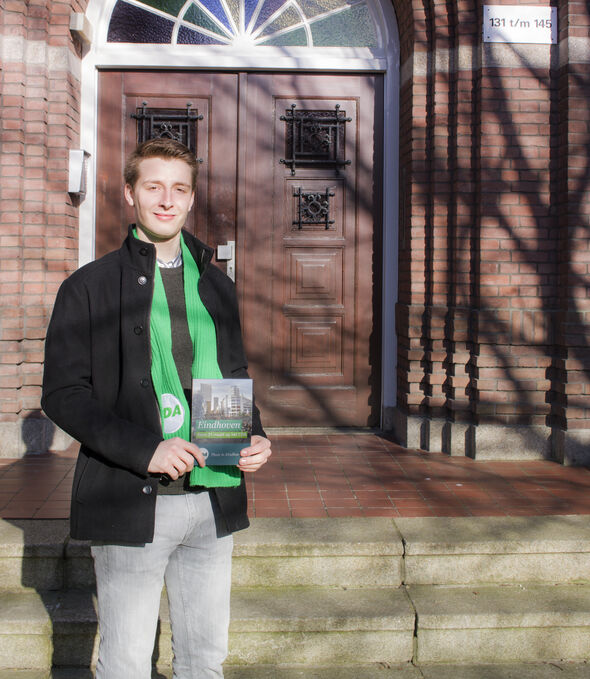
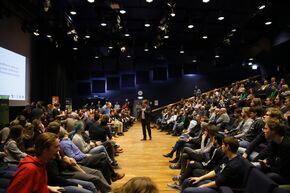
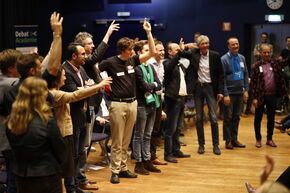
Discussion